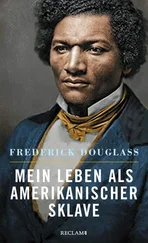I have already referred to the business-like aspect of Col. Lloyd’s plantation. This business-like appearance was much increased on the two days at the end of each month, when the slaves from the different farms came to get their monthly allowance of meal and meat. These were gala days for the slaves, and there was much rivalry among them as to who should be elected to go up to the great house farm for the allowance, and, indeed, to attend to any business at this (for them) the capital. The beauty and grandeur of the place, its numerous slave population, and the fact that Harry, Peter and Jake the sailors of the sloop—almost always kept, privately, little trinkets which they bought at Baltimore, to sell, made it a privilege to come to the great house farm. Being selected, too, for this office, was deemed a high honor. It was taken as a proof of confidence and favor; but, probably, the chief motive of the competitors for the place, was, a desire to break the dull monotony of the field, and to get beyond the overseer’s eye and lash. Once on the road with an ox team, and seated on the tongue of his cart, with no overseer to look after him, the slave was comparatively free; and, if thoughtful, he had time to think. Slaves are generally expected to sing as well as to work. A silent slave is not liked by masters or overseers. “Make a noise,” “make a noise,” and “bear a hand,” are the words usually addressed to the slaves when there is silence amongst them. This may account for the almost constant singing heard in the southern states. There was, generally, more or less singing among the teamsters, as it was one means of letting the overseer know where they were, and that they were moving on with the work. But, on allowance day, those who visited the great house farm were peculiarly excited and noisy. While on their way, they would make the dense old woods, for miles around, reverberate with their wild notes. These were not always merry because they were wild. On the contrary, they were mostly of a plaintive cast, and told a tale of grief and sorrow. In the most boisterous outbursts of rapturous sentiment, there was ever a tinge of deep melancholy. I have never heard any songs like those anywhere since I left slavery, except when in Ireland. There I heard the same wailing notes , and was much affected by them. It was during the famine of 1845-6. In all the songs of the slaves, there was ever some expression in praise of the great house farm; something which would flatter the pride of the owner, and, possibly, draw a favorable glance from him.
I am going away to the great house farm, O yea! O yea! O yea! My old master is a good old master, O yea! O yea! O yea!
This they would sing, with other words of their own improvising—jargon to others, but full of meaning to themselves. I have sometimes thought, that the mere hearing of those songs would do more to impress truly spiritual-minded men and women with the soul-crushing and death-dealing character of slavery, than the reading of whole volumes of its mere physical cruelties. They speak to the heart and to the soul of the thoughtful. I cannot better express my sense of them now, than ten years ago, when, in sketching my life, I thus spoke of this feature of my plantation experience:
I did not, when a slave, understand the deep meanings of those rude, and apparently incoherent songs. I was myself within the circle, so that I neither saw or heard as those without might see and hear. They told a tale which was then altogether beyond my feeble comprehension; they were tones, loud, long and deep, breathing the prayer and complaint of souls boiling over with the bitterest anguish. Every tone was a testimony against slavery, and a prayer to God for deliverance from chains. The hearing of those wild notes always depressed my spirits, and filled my heart with ineffable sadness. The mere recurrence, even now, afflicts my spirit, and while I am writing these lines, my tears are falling. To those songs I trace my first glimmering conceptions of the dehumanizing character of slavery. I can never get rid of that conception. Those songs still follow me, to deepen my hatred of slavery, and quicken my sympathies for my brethren in bonds. If any one wishes to be impressed with a sense of the soul-killing power of slavery, let him go to Col. Lloyd’s plantation, and, on allowance day, place himself in the deep, pine woods, and there let him, in silence, thoughtfully analyze the sounds that shall pass through the chambers of his soul, and if he is not thus impressed, it will only be because “there is no flesh in his obdurate heart.”
The remark is not unfrequently made, that slaves are the most contended and happy laborers in the world. They dance and sing, and make all manner of joyful noises—so they do; but it is a great mistake to suppose them happy because they sing. The songs of the slave represent the sorrows, rather than the joys, of his heart; and he is relieved by them, only as an aching heart is relieved by its tears. Such is the constitution of the human mind, that, when pressed to extremes, it often avails itself of the most opposite methods. Extremes meet in mind as in matter. When the slaves on board of the “Pearl” were overtaken, arrested, and carried to prison—their hopes for freedom blasted—as they marched in chains they sang, and found (as Emily Edmunson tells us) a melancholy relief in singing. The singing of a man cast away on a desolate island, might be as appropriately considered an evidence of his contentment and happiness, as the singing of a slave. Sorrow and desolation have their songs, as well as joy and peace. Slaves sing more to make themselves happy, than to express their happiness.
It is the boast of slaveholders, that their slaves enjoy more of the physical comforts of life than the peasantry of any country in the world. My experience contradicts this. The men and the women slaves on Col. Lloyd’s farm, received, as their monthly allowance of food, eight pounds of pickled pork, or their equivalent in fish. The pork was often tainted, and the fish was of the poorest quality—herrings, which would bring very little if offered for sale in any northern market. With their pork or fish, they had one bushel of Indian meal—unbolted—of which quite fifteen per cent was fit only to feed pigs. With this, one pint of salt was given; and this was the entire monthly allowance of a full grown slave, working constantly in the open field, from morning until night, every day in the month except Sunday, and living on a fraction more than a quarter of a pound of meat per day, and less than a peck of corn-meal per week. There is no kind of work that a man can do which requires a better supply of food to prevent physical exhaustion, than the field-work of a slave. So much for the slave’s allowance of food; now for his raiment. The yearly allowance of clothing for the slaves on this plantation, consisted of two tow-linen shirts—such linen as the coarsest crash towels are made of; one pair of trowsers of the same material, for summer, and a pair of trowsers and a jacket of woolen, most slazily put together, for winter; one pair of yarn stockings, and one pair of shoes of the coarsest description. The slave’s entire apparel could not have cost more than eight dollars per year. The allowance of food and clothing for the little children, was committed to their mothers, or to the older slavewomen having the care of them. Children who were unable to work in the field, had neither shoes, stockings, jackets nor trowsers given them. Their clothing consisted of two coarse tow-linen shirts—already described—per year; and when these failed them, as they often did, they went naked until the next allowance day. Flocks of little children from five to ten years old, might be seen on Col. Lloyd’s plantation, as destitute of clothing as any little heathen on the west coast of Africa; and this, not merely during the summer months, but during the frosty weather of March. The little girls were no better off than the boys; all were nearly in a state of nudity.
Читать дальше












